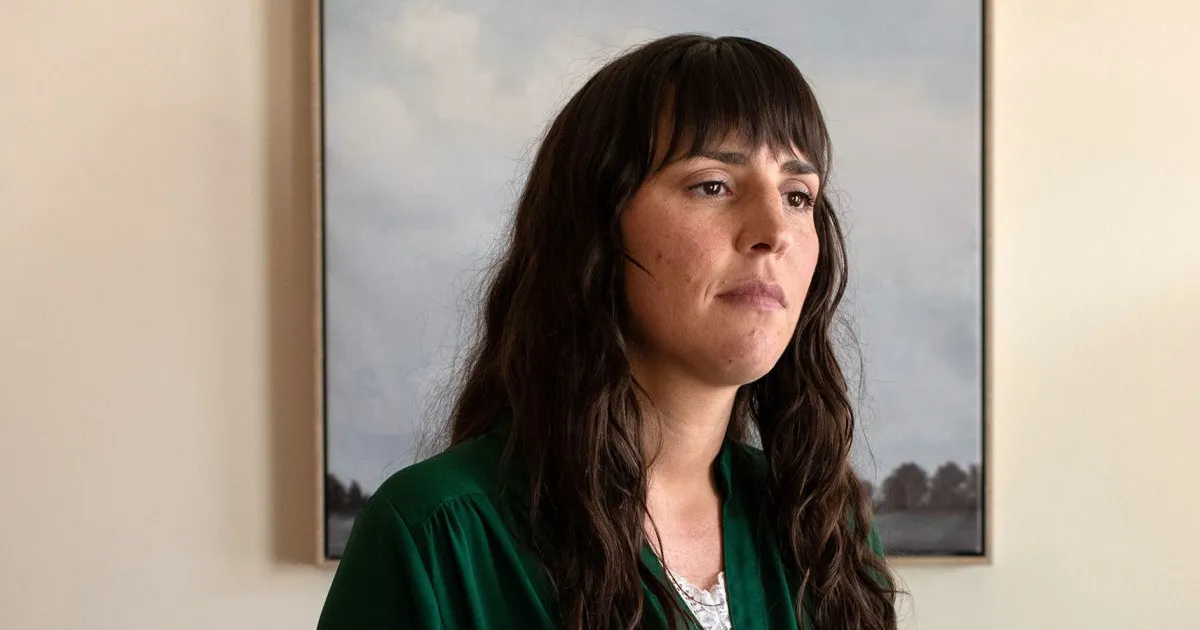
WASHINGTON — The Supreme Court is currently deliberating a significant free speech challenge regarding a Colorado law that prohibits conversion therapy aimed at young individuals who are questioning their sexual orientations or gender identities. This case, which is poised to have national implications, could influence more than 20 other states that have implemented similar bans on conversion therapy.
The case was brought forward by Kaley Chiles, a Christian therapist who argues that the 2019 Colorado law infringes upon her First Amendment rights to free speech. Conversion therapy is a practice often supported by certain religious conservatives, which seeks to alter the sexual orientation of gay or lesbian minors to heterosexual and encourage transgender children to conform to the gender identities assigned to them at birth. Under the Colorado law, licensed therapists are prohibited from carrying out this practice, while religious entities and family members are not subject to the same restrictions.
The primary issue at hand is whether these bans act as regulations of conduct, as the state claims, or as regulations of speech, which Chiles argues. Chiles maintains that her practice consists solely of talk therapy. During the oral arguments, the justices appeared inclined to side with Chiles' perspective, suggesting that the Colorado law may be attempting to regulate speech in a manner that favors one viewpoint over another.
Conservative Justice Samuel Alito pointed out that distinguishing between speech that encourages minors to embrace their identity while prohibiting them from questioning it constitutes blatant viewpoint discrimination. Chief Justice John Roberts echoed this sentiment, stating that engagement in conduct does not negate the protection of their words under the First Amendment. He referenced a previous Supreme Court ruling from 2018, in which the conservative majority supported a free speech challenge against a California law requiring anti-abortion pregnancy centers to inform clients about available abortion services.
The justices showed some skepticism towards the state's argument that the speech in question is inherently tied to conduct that medical regulators commonly restrict. While some justices expressed concern about the implications of the ruling, particularly regarding mirror-image laws in conservative states that might seek to ban therapy encouraging youth to embrace their gender identity or sexual orientation, others, like Justice Ketanji Brown Jackson, probed the inconsistencies in how the court applies deference to state regulations.
Historically, the Supreme Court has supported LGBTQ rights, notably legalizing same-sex marriage in 2015 and affirming protections against employment discrimination based on sexual orientation and gender identity in 2020. However, the court has also upheld free speech and religious expression rights that conflict with anti-discrimination laws meant to protect LGBTQ individuals. Recently, the court backed a religious rights challenge against a Maryland school district's policy on LGBTQ-themed books in elementary schools.
Colorado Attorney General Phil Weiser stated in court filings that a ruling against the state would jeopardize not only conversion therapy bans but also other healthcare treatments deemed unsafe or ineffective. Conversely, Chiles, represented by the conservative Christian group Alliance Defending Freedom, argued that therapy is an essential form of speech that aids young people in understanding their identities. Her legal team contends that the state is attempting to control the self-beliefs of these individuals.
As the court deliberates, it may not provide a definitive ruling on conversion therapy bans. Instead, it could choose to focus on whether the lower courts that upheld the ban conducted the appropriate legal analysis. If the law is found to infringe on free speech, it may undergo strict scrutiny, where judges evaluate whether the government's actions serve a compelling interest and are narrowly tailored to achieve that goal. The Trump administration has also submitted a brief supporting the challengers, asserting that the law does indeed burden speech while maintaining that a ruling in favor of Chiles would not dismantle state regulations in other sectors.